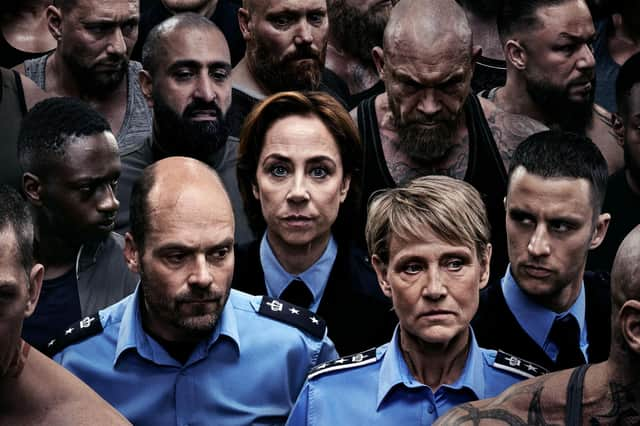Scotland turns focus on screen success of northern neighbours


Denmark has in many respects been the trailblazer, having produced a series of TV blockbusters including The Killing, The Bridge and Borgen which have been remarkably successful around the world, despite being filmed in Danish, a language spoken by five million people.
Danish success has been built on solid foundations with a Danish Film School, Danish Film Institute, Danish public television DR, strong support from the Danish government and remarkably talented screen talent – in front of and behind the camera. Denmark’s public broadcaster DR has three TV channels and seven radio stations. Its annual revenue is over £400 million and has 4,200 employees. By comparison BBC Scotland has only a third of the number of staff and a smaller fraction of the comparable budget.
Advertisement
Hide AdAdvertisement
Hide AdIn recent years, DR has managed to produce one hit international TV series after another. The Killing has now graced our screens with three series and 40 episodes. The procedural drama television series is set in Copenhagen and revolves around Detective Inspector Sarah Lund (Sofie Gråbøl), easily recognisable with her signature Faroese jumper. In the UK, it attracted more viewers than Mad Men and was described as “the best series currently on TV”.
The hit political drama Borgen has now had four series and 38 episodes with Birgitte Nyborg Christensen (Sidse Babett Knudsen) playing the first female prime minister of Denmark. The Bridge was a striking joint success for Danish and Swedish TV and has been watched in over 100 countries. It ran for four seasons with 38 episodes. Further Danish hit television series have included 1864, The Legacy, The Rain, Those Who Kill and most recently Prisoner, which is currently available on the BBC iPlayer.
Meanwhile on the big screen in 2022, the Danish Film Institute managed to support 22 feature films for production, eight minor feature film co-productions, 21 documentary films, eight minor co-production documentaries and five short films. All the while the Danish Film School is turning out one talented graduate after another, the most famous of which is probably Lars von Trier.
In Scotland we have major progress in recent years with new studios opening at a never-before-seen rate. Scotland’s production and development sector has recently delivered a 38 per cent increase in employment, alongside a 39 per cent increase in economic impact. Inward film and High End TV production alone grew by 110 per cent, from £165.3m in 2019 to £347.4m in 2021.
Advertisement
Hide AdAdvertisement
Hide AdIn 2021, the most recent year surveyed, the broad screen sector in Scotland employed 10,940 full time equivalent workers, with an overall economic contribution to Scotland’s economy of £627m. Under the new strategy recently outlined by Screen Scotland there’s a target for 55 per cent further growth in Gross Value Added to £1bn by end 2030/31, with a parallel 55 per cent increase in full time equivalent employment to 17,000 jobs across Scotland’s screen sector. Scotland’s screen industry can still learn many lessons from Denmark as we grow and seek to emulate their film and TV success.
Angus Robertson MSP is Constitution, External Affairs and Culture Secretary